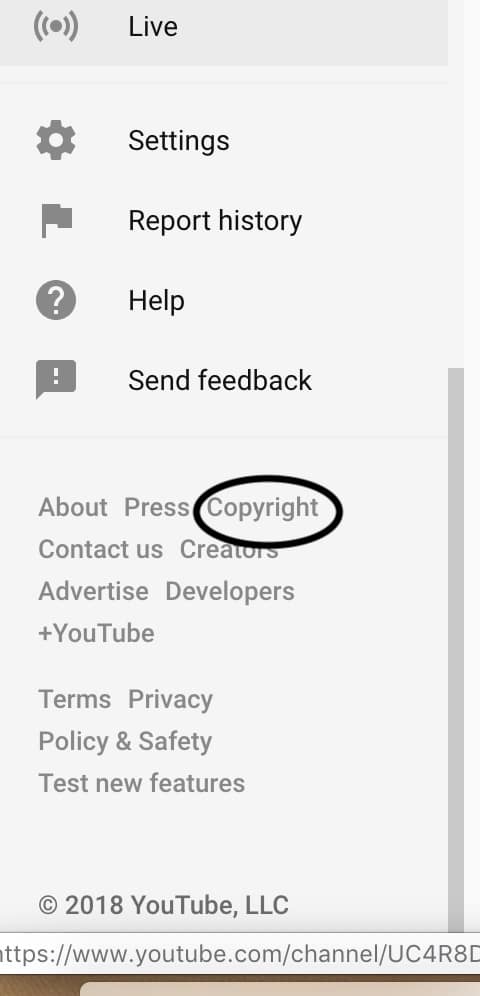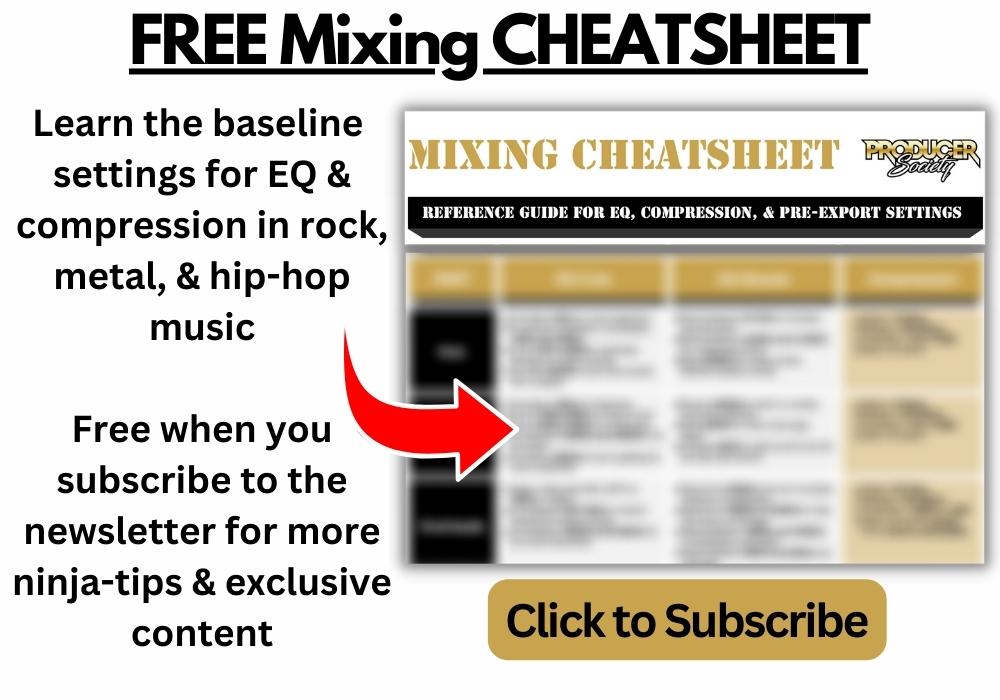Due to the potential legal complications of the music business, a big question people often ask is whether they can use Apple Loops without paying any royalties, and whether they can use them legally?
Apple loops are royalty-free. It says directly in GarageBand’s Software Agreement that “you may use the Apple and third party audio loop content (Audio content)” on a royalty-free basis, which means you won’t be charged a royalty fee and you won’t be sued for copyright infringement.
It goes on to say that Garageband and Logic Pro X users are free to use loops “on a royalty-free basis, to create your own original music or audio projects. There is a caveat though. What you cannot do, is sell them individually or use them on a standalone basis.

For example, let’s say that you used an Apple Loop without drums or an accompanying guitar. Your track is just nothing but an Apple Loop. You can’t monetize that track like you’d be able to had you written it with the help of Piano For All, one of the best ways to learn the keyboard.
Moreover, you can’t package an Apple Loop in with other audio samples and pretend like they’re your own. For instance, if you were to create your own set of loops or samples for sale on your website including an Apple Loop, that’s a big no-no.
You can check out the Software Licence Agreement in the link that I’ve provided at the bottom of this article. The part that I’ve highlighted in the screenshot above is on the third page.
What Does Royalty-Free Mean?
Royalty-free loops mean that if you use one of the loops or audio recordings, you don’t have to pay anyone if the track ends up earning money. You also don’t have to credit anyone for the recording.
According to Billy Corgan during his conversation with Joe Rogan, in the music industry, the song-writer typically earns more money per sale than everyone else in the group.
Copyright Strikes On YouTube Because Of Apple Loops
When I looked into this topic, I strumbled across people complaining about receiving copyright strikes on YouTube due to an Apple Loop in their song. However, in this case, this person likely wasn’t hit with a copyright strike due to the Apple Loop.
In my own experience, I’ve had YouTube send me a copyright notice, despite the fact I uploaded music that was 100% original, without using software, loops, or any other gear that could’ve been construed as a copyrighted piece of music.
For whatever reason, YouTube just isn’t good at determining what it is copyrighted and what isn’t. Sometimes, YouTube users are just hit with copyright strikes despite the fact they’ve created an original piece of content.
From what I understand, YouTube has an algorithm that looks for copyright infringement, and these systems are prone to error.
What To Do When You’re Hit With A Copyright Notice?
In these cases, YouTube creators have the option of emailing the person/company/complainant and asking for them to retract their statement of copyright infringement.
Or, you can file a counter notification which subsequently becomes a legal process. These options are found on the left-hand side of your YouTube homepage, beneath all of your subscriptions and settings.

1) You have to scroll down to YouTube’s home page on the left-hand side where it lists all of the other pages, “About,” “Press,” “Copyright,” “Contact Us,” “Creators,” “Advertise,” “Developers,” and “+YouTube.”
2) Now click on “Copyright,” and it’ll bring up all of your options, including submitting a copyright infringement notification, retracting a claim, disputing a claim that someone else made against you, and more.

From what I understand, you’re only allowed three strikes on YouTube, so it’s in your best interest to try and fight copyright claims made against you.
In some cases, people who have used a loop in their song will file a copyright infringement on another person who used the same loop. This is a messy situation.
However, the two parties just have to work it out and understand that neither of them created the loop. No one owns the rights to Apple Loops except for Apple, and they’ve permitted everyone to use them.
It says in the agreement that people can’t claim the rights to Apple Loops and pass them off on their own, so I believe that if another person is trying to take down your song using the same sound/loop, they’re not legally permitted to do that.
Can I Publish My Songs Made In Garageband?
It says in the “Software Licence Agreement,” that users of Garageband are allowed to use songs for commercial purposes. There shouldn’t ever be an issue with any of the music you’ve created in Garageband.
However, the loops are the one area where you have to be more careful, as I mentioned above. It says clearly in the screenshotted license agreement above that a user can use the software to make and distribute content with it.
Are Copyright Laws Different In Other Countries?
Each country has its own unique laws for copyright and other legalities, so you may have to read the license agreement relative to your country of residence.
Apparently, people in Germany, for example, allegedly can use up to eight seconds of a clip and don’t have to worry about being hit with a copyright notice. However, this may be an urban legend.
The copyright office in the United States says that there is no set amount of words, lyrics, bars, notes, or any other unit of measurement that is permitted without permission from the original artist. I can’t imagine that Germany’s laws will be much different from American.
It goes without saying, that if you’re unsure of the laws in your area, consult authoritative sources, rather than random YouTube and forum commenters.
How Do I Copyright A Song Made In Garageband?
Whenever you create a piece of music, under the law, you automatically own the rights to your creation. It doesn’t matter if you use Garageband or DAW.
However, when it comes to defending your copyrighted material against other people monetizing it, that’s an entirely different issue altogether and is beyond the scope of that article.
According to Richard Schulenberg in his book on my Product Page Legal Aspects of the Music Industry, you have rights to a song that you created right from the beginning. But, let’s say that someone uses your work, monetizes it, and makes a million dollars.
If you haven’t registered your music with the United States Copyright Office (USCC) using my guide, you won’t be able to sue the offending person with the full extent of the law.
You can register officially through a lawyer, but an attorney is just serving as the middle-man between you and the United States Copyright Office.
What Happens If I Haven’t Registered My Music With The United States Copyright Office?
If someone uses your music without your permission, uploads it to YouTube, Spotify, iTunes, or whatever streaming platform out there, you can file a Digital Millenium Copyright Act (DMCA) notice to have that person remove it.
This is your right as the original copyright owner. Moreover, if things get worse, you could send a cease-and-desist letter.
As an original copyright owner, you have the rights to stop someone from using your music, but you won’t be able to sue that person for everything they made from your work if you haven’t formally registered your music with the United States Copyright Office.
If People Copy You – Maybe It’s Better To Just Move On
One of my favorite artists once said in a video that if people are copying your material, chances are, they need it a lot more than you do.
In other words, if another person is so desperate they have to copy your work, that means they probably don’t have the ability to create original and compelling content on their own.
I think a lot of people in this situation probably take it very personally, but truthfully, you might be better off to just let it go, and continue making original music.
In reality, the average person can’t afford to take someone to court over copyright infringement.
Peter Thiel, the CEO of Paypal, said in an interview recently that the average millionaire can’t afford to fight someone in a court of law, because it’s just way too much money.
And he’s correct, the system is simply too expensive for the average person to take someone to court over a case of copyright infringement. While you may win the case, it’s going to cost you thousands of dollars, some might even say millions of dollars.
And if you haven’t registered music with the United States Copyright Office, the extent of how much money and damages you can get back is limited, so it won’t even be worth it, monetarily speaking.
A Short Story on Peter Thiel
In Peter’s case, he helped Hulk Hogan take down the now-defunct gossip tabloid publication, Gawker, because Gawker published a video of Hulk Hogan that practically ruined his career.
Gawker, for years, had been harassing Peter Thiel, continually outing him as a gay man, which he allegedly is, but he chose to keep that matter private. And obviously, it’s his decision whether he wants that part of his personal life in the open or not.
According to Ryan Holladays’ book, Conspiracy, Peter funded Hulk Hogan’s defamation case against Gawker because he knew that Hulk Hogan didn’t have the money to pay for it, even though, Hogan was a millionaire.
Unfortunately, with the way in which the legal system is set-up, lawyers are the main beneficiaries from legal battles between conflicting parties.
In Andrew Watts’ book, Fables Of Fortune, he says that lawyers in many cases, will work on a case in estate law, where the attorney understands his client has no chance of ever winning, but they’ll take the case and work on it forever, that way they can continue sending the bill to their rich clients.
The point I’m making with this little story is this: It’s difficult to swallow your pride, but, a person may be better off to just drop the issue altogether and save yourself the loss of time, money, and energy, from years of legal disputes.
Other Articles You May Be Interested In
- How To Make Your Own Loops In Garageband
- How To Find & Change Keys of Apple Loops in GarageBand iOS
- How to Loop in Logic Pro for iPad [All File Types]
- How to Loop in FL Studio Mobile [3-Min Read]
- How to Loop in Garageband iOS [3 Min Read]
Gear Mentioned
1) Legal Aspects of the Music Industry
2) PianoForAll
Sources
4) GarageBand Licence Agreement
6) Billy Corgan on the Music Industry


 Written By :
Written By : 